Results
-
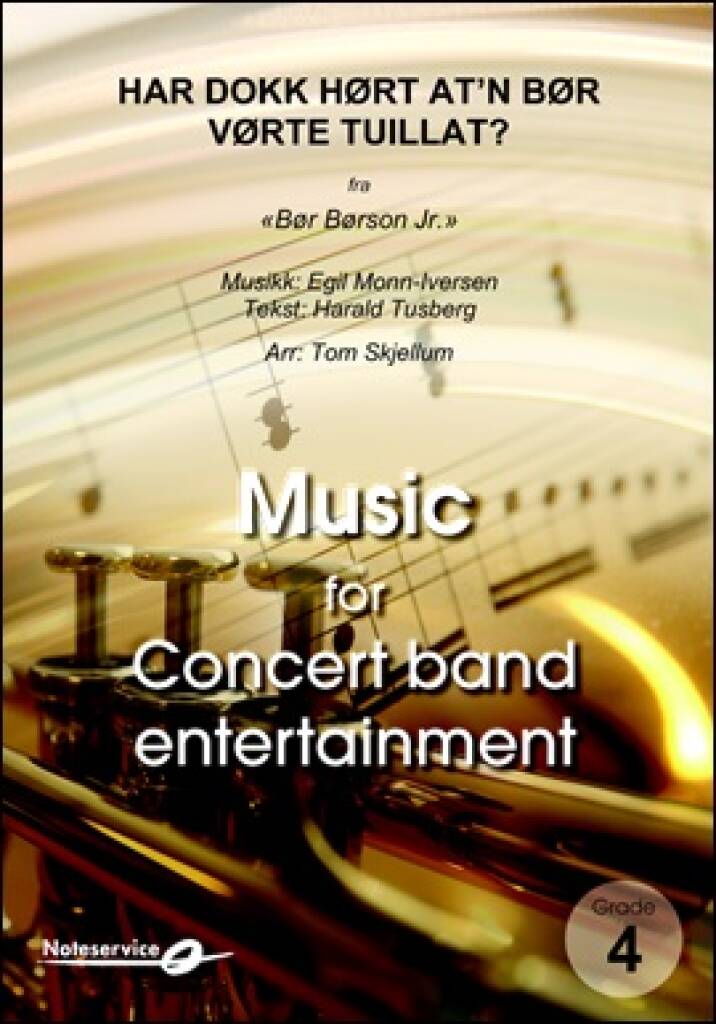 £137.70
£137.70Har dokk hrt at'n Br vrte tuillat - Egil Monn-Iversen
Johan Falkberget wrote the novel Br Brson Jr. in 1920. It is the story of the naive bachelor and trader Br Brson Jr. and his fight for wealth and fame. On his way, he face prejudices and envy on the countryside and investors in the bigger citites. All of them tries to exploit his credulity. The musikal, based on the novel by Johan Falkberget, was written by Egil Monn-Iversen (music) and Harald Tusberg (lyrics) for Det Norske Teatret in 1972. It was a great success from the very beginning. In 1974, a movie version of Br Brson Jr. was produced. Also this with great success.
Estimated dispatch 7-14 working days
-
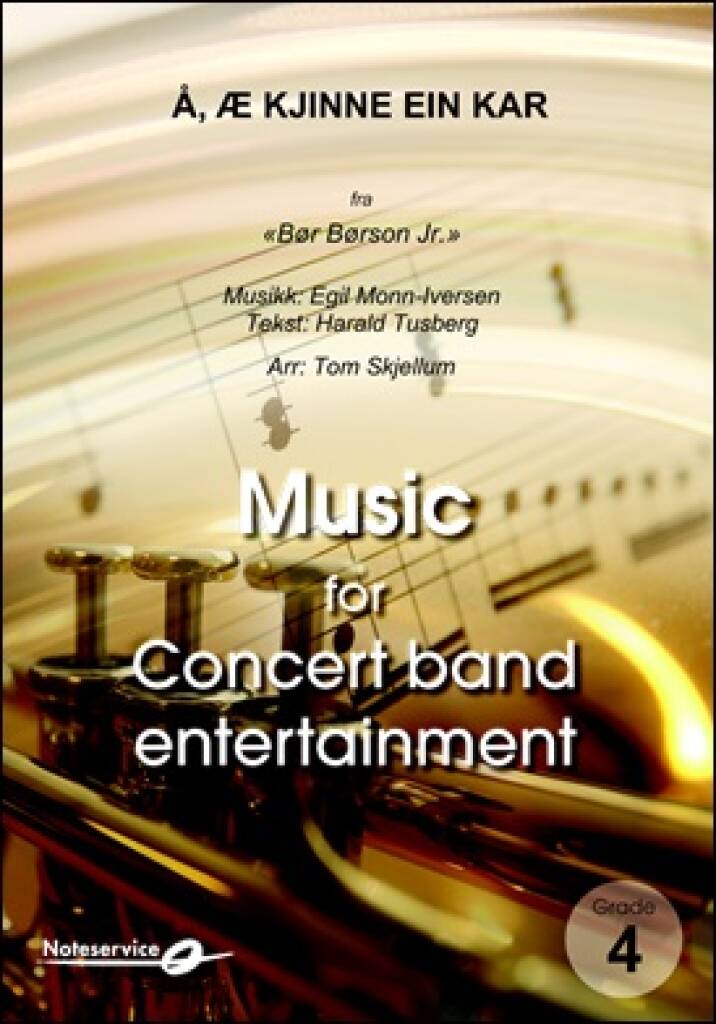 £137.70
£137.70..., kjinne ein kar - Egil Monn-Iversen
Johan Falkberget wrote the novel Br Brson Jr. in 1920. It is the story of the naive bachelor and trader Br Brson Jr. and his fight for wealth and fame. On his way, he face prejudices and envy on the countryside and investors in the bigger citites. All of them tries to exploit his credulity. The musikal, based on the novel by Johan Falkberget, was written by Egil Monn-Iversen (music) and Harald Tusberg (lyrics) for Det Norske Teatret in 1972. It was a great success from the very beginning. In 1974, a movie version of Br Brson Jr. was produced. Also this with great success.
Estimated dispatch 7-14 working days
-
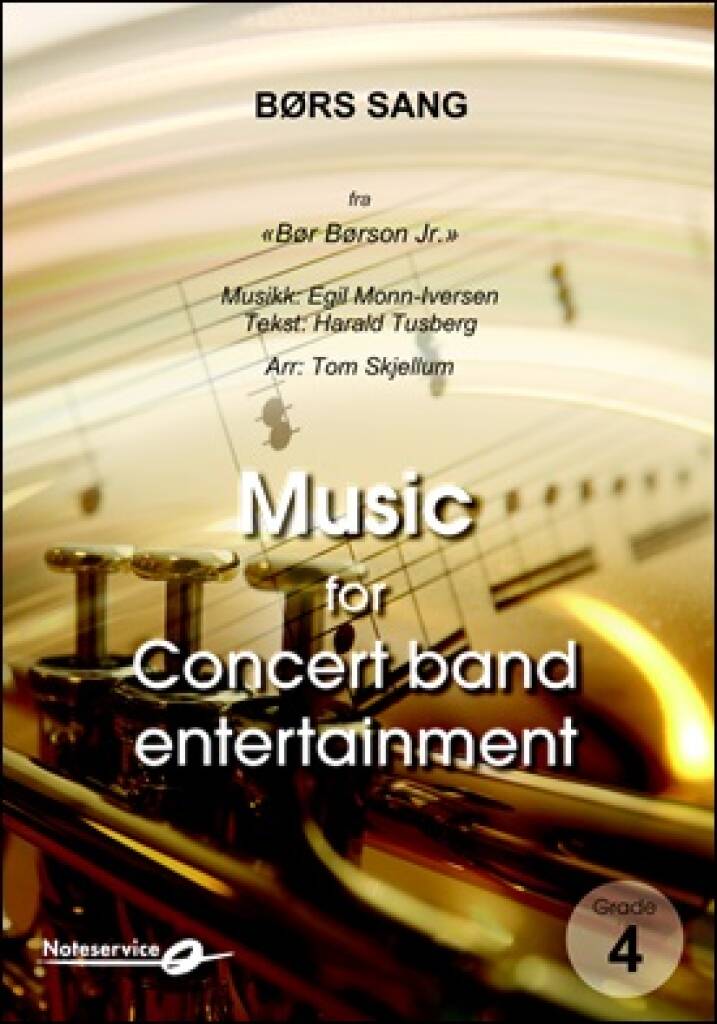 £137.70
£137.70Brs sang - Egil Monn-Iversen
Johan Falkberget wrote the novel Br Brson Jr. in 1920. It is the story of the naive bachelor and trader Br Brson Jr. and his fight for wealth and fame. On his way, he face prejudices and envy on the countryside and investors in the bigger citites. All of them tries to exploit his credulity. The musikal, based on the novel by Johan Falkberget, was written by Egil Monn-Iversen (music) and Harald Tusberg (lyrics) for Det Norske Teatret in 1972. It was a great success from the very beginning. In 1974, a movie version of Br Brson Jr. was produced. Also this with great success.
Estimated dispatch 7-14 working days
-
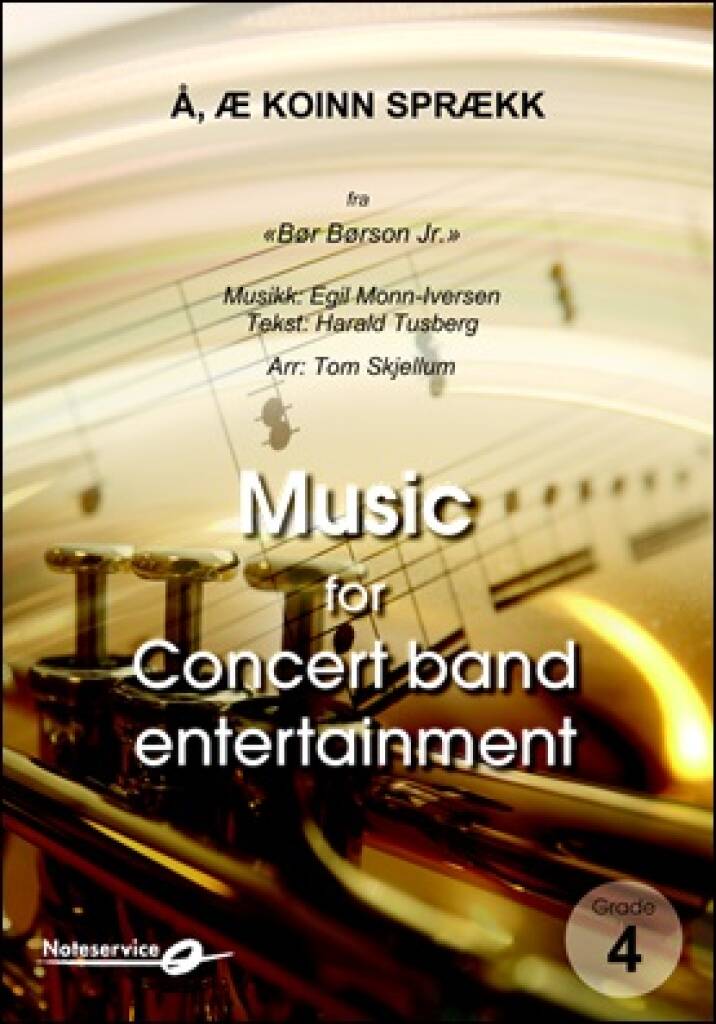 £137.70
£137.70..., koinn sprkk - Egil Monn-Iversen
Johan Falkberget wrote the novel Br Brson Jr. in 1920. It is the story of the naive bachelor and trader Br Brson Jr. and his fight for wealth and fame. On his way, he face prejudices and envy on the countryside and investors in the bigger citites. All of them tries to exploit his credulity. The musikal, based on the novel by Johan Falkberget, was written by Egil Monn-Iversen (music) and Harald Tusberg (lyrics) for Det Norske Teatret in 1972. It was a great success from the very beginning. In 1974, a movie version of Br Brson Jr. was produced. Also this with great success.
Estimated dispatch 7-14 working days
-
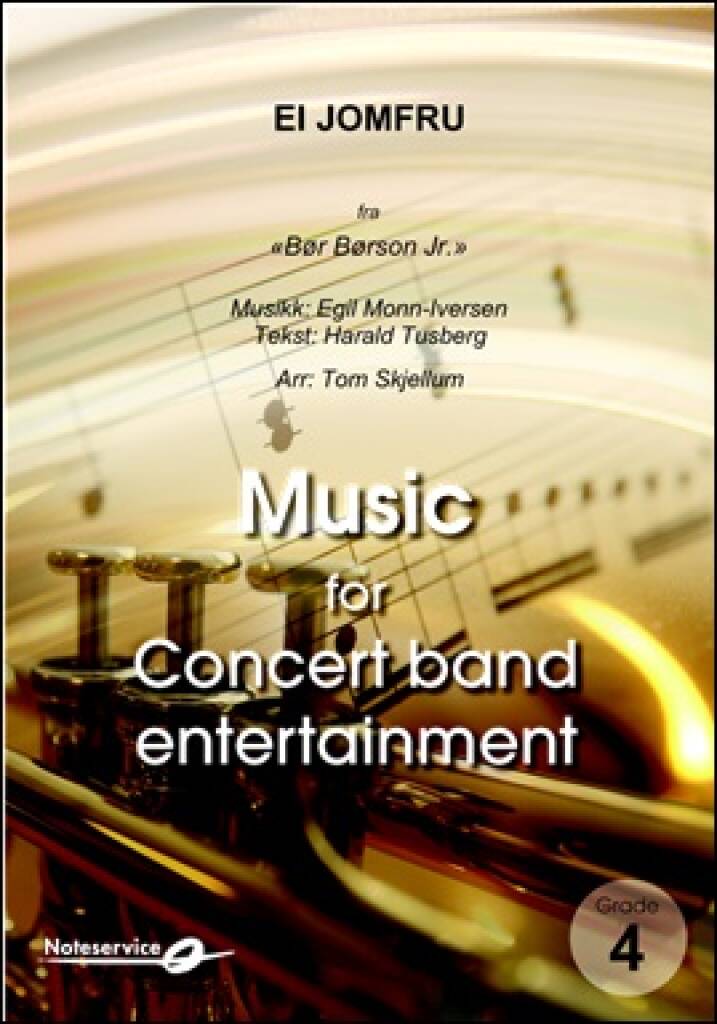 £137.70
£137.70Ei jomfru - Egil Monn-Iversen
Johan Falkberget wrote the novel Br Brson Jr. in 1920. It is the story of the naive bachelor and trader Br Brson Jr. and his fight for wealth and fame. On his way, he face prejudices and envy on the countryside and investors in the bigger citites. All of them tries to exploit his credulity. The musikal, based on the novel by Johan Falkberget, was written by Egil Monn-Iversen (music) and Harald Tusberg (lyrics) for Det Norske Teatret in 1972. It was a great success from the very beginning. In 1974, a movie version of Br Brson Jr. was produced. Also this with great success.
Estimated dispatch 7-14 working days
-
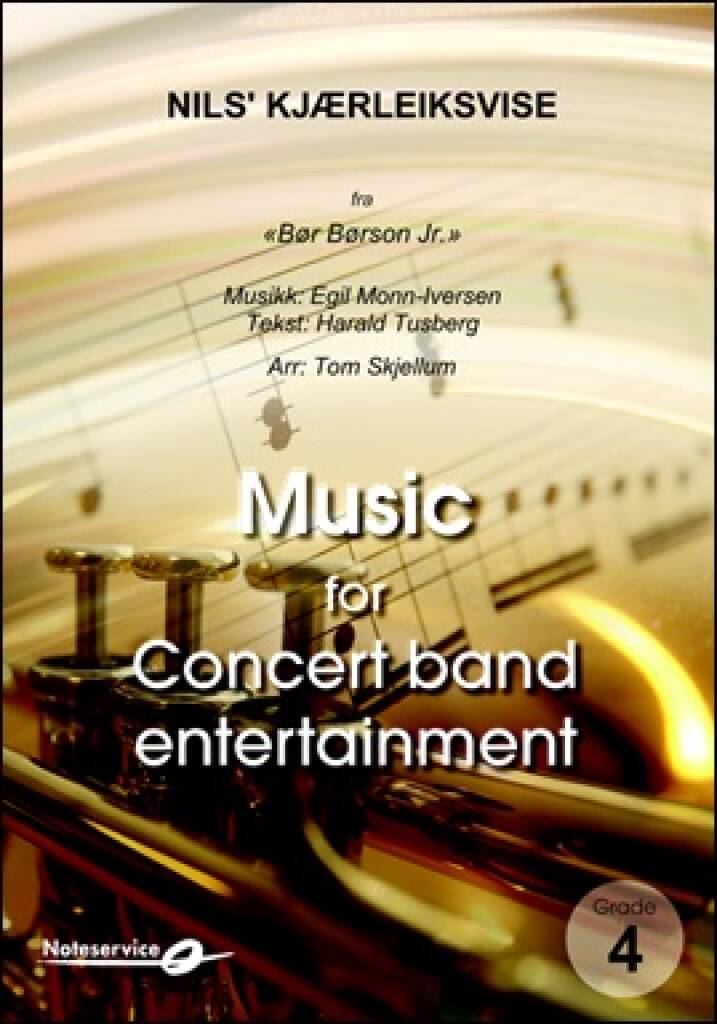 £137.70
£137.70Nils kjrleiksvise - Egil Monn-Iversen
Johan Falkberget wrote the novel Br Brson Jr. in 1920. It is the story of the naive bachelor and trader Br Brson Jr. and his fight for wealth and fame. On his way, he face prejudices and envy on the countryside and investors in the bigger citites. All of them tries to exploit his credulity. The musikal, based on the novel by Johan Falkberget, was written by Egil Monn-Iversen (music) and Harald Tusberg (lyrics) for Det Norske Teatret in 1972. It was a great success from the very beginning. In 1974, a movie version of Br Brson Jr. was produced. Also this with great success.
Estimated dispatch 7-14 working days
-
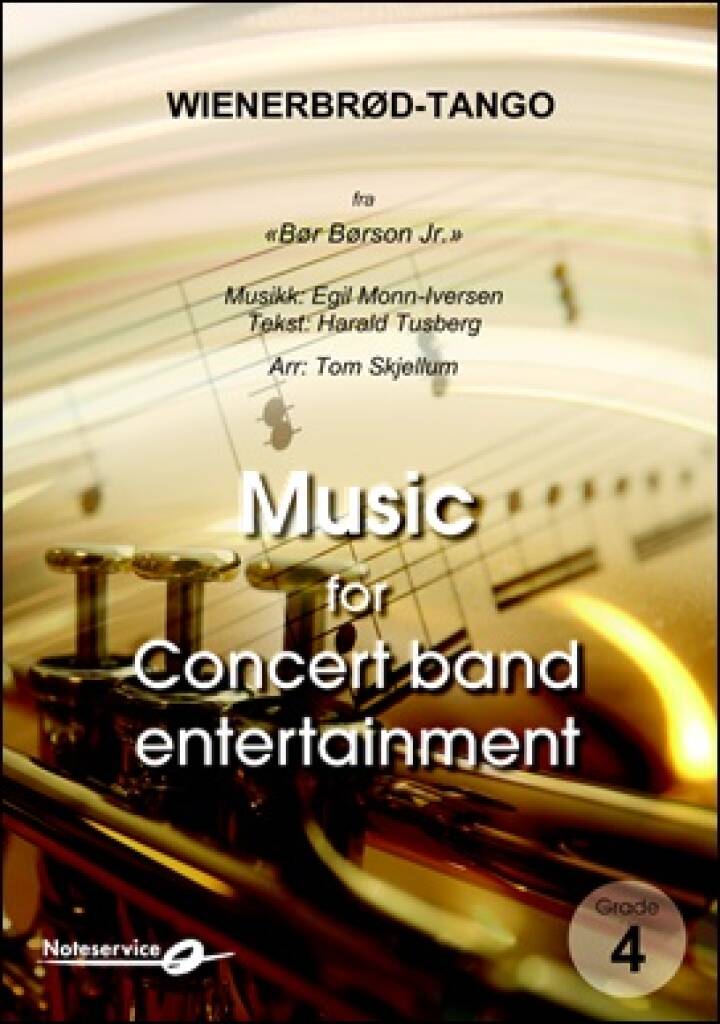 £137.70
£137.70Wienerbrd-Tango - Egil Monn-Iversen
Johan Falkberget wrote the novel Br Brson Jr. in 1920. It is the story of the naive bachelor and trader Br Brson Jr. and his fight for wealth and fame. On his way, he face prejudices and envy on the countryside and investors in the bigger citites. All of them tries to exploit his credulity. The musikal, based on the novel by Johan Falkberget, was written by Egil Monn-Iversen (music) and Harald Tusberg (lyrics) for Det Norske Teatret in 1972. It was a great success from the very beginning. In 1974, a movie version of Br Brson Jr. was produced. Also this with great success.
Estimated dispatch 7-14 working days
-
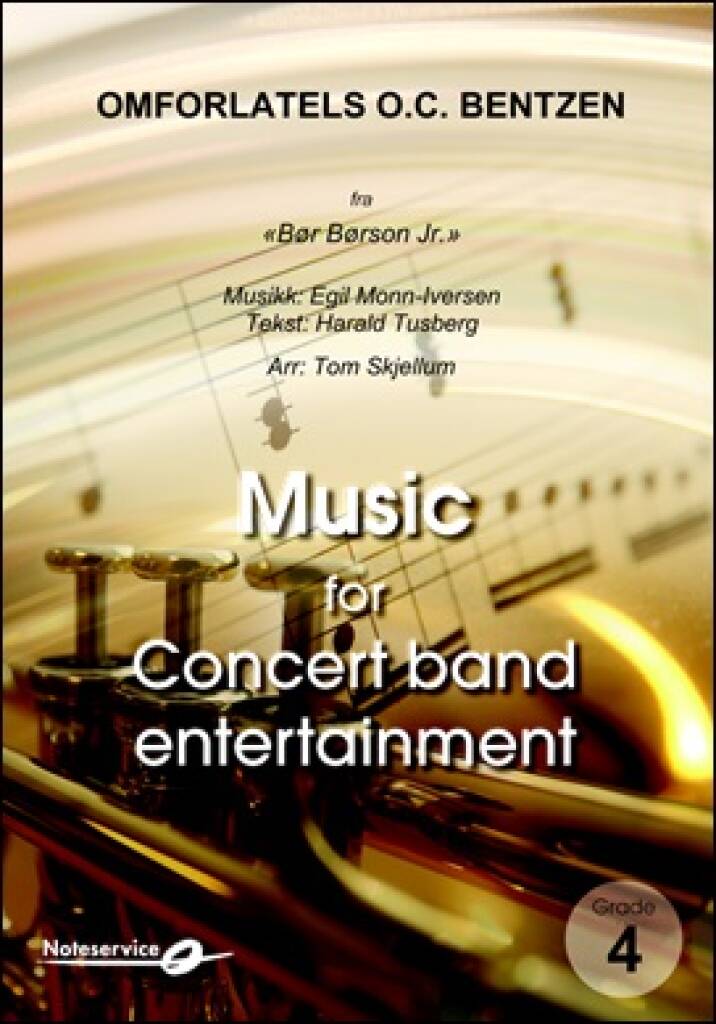 £137.70
£137.70Omforlatels O.C. Bentzen - Egil Monn-Iversen
Johan Falkberget wrote the novel Br Brson Jr. in 1920. It is the story of the naive bachelor and trader Br Brson Jr. and his fight for wealth and fame. On his way, he face prejudices and envy on the countryside and investors in the bigger citites. All of them tries to exploit his credulity. The musikal, based on the novel by Johan Falkberget, was written by Egil Monn-Iversen (music) and Harald Tusberg (lyrics) for Det Norske Teatret in 1972. It was a great success from the very beginning. In 1974, a movie version of Br Brson Jr. was produced. Also this with great success.
Estimated dispatch 7-14 working days
-
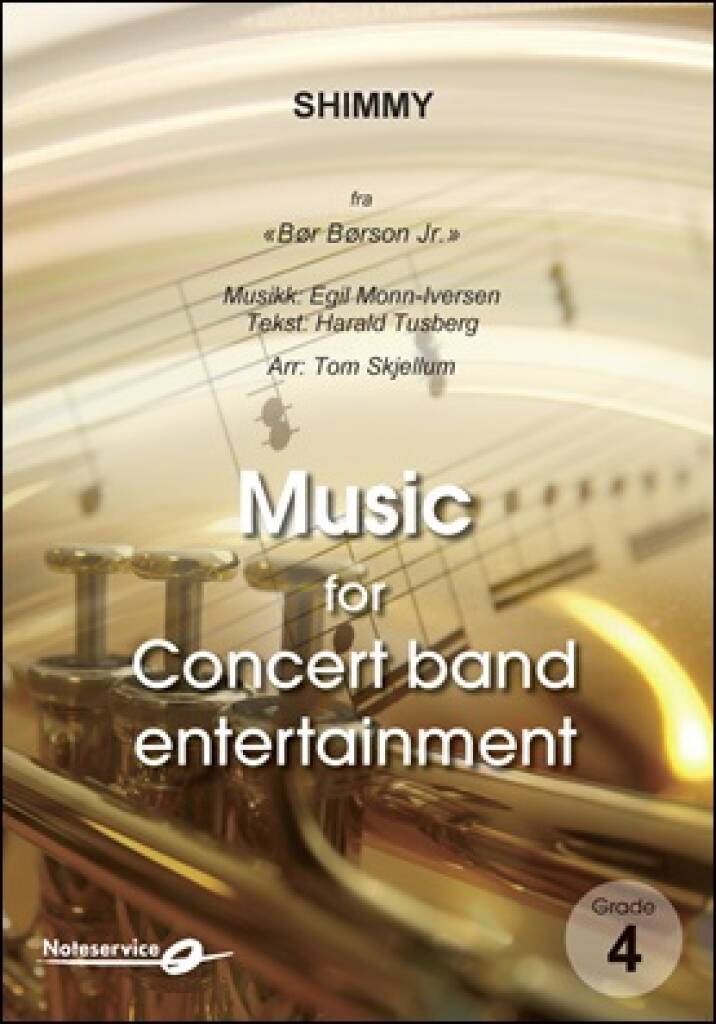 £137.70
£137.70Shimmy - Egil Monn-Iversen
Johan Falkberget wrote the novel Br Brson Jr. in 1920. It is the story of the naive bachelor and trader Br Brson Jr. and his fight for wealth and fame. On his way, he face prejudices and envy on the countryside and investors in the bigger citites. All of them tries to exploit his credulity. The musikal, based on the novel by Johan Falkberget, was written by Egil Monn-Iversen (music) and Harald Tusberg (lyrics) for Det Norske Teatret in 1972. It was a great success from the very beginning. In 1974, a movie version of Br Brson Jr. was produced. Also this with great success.
Estimated dispatch 7-14 working days
-
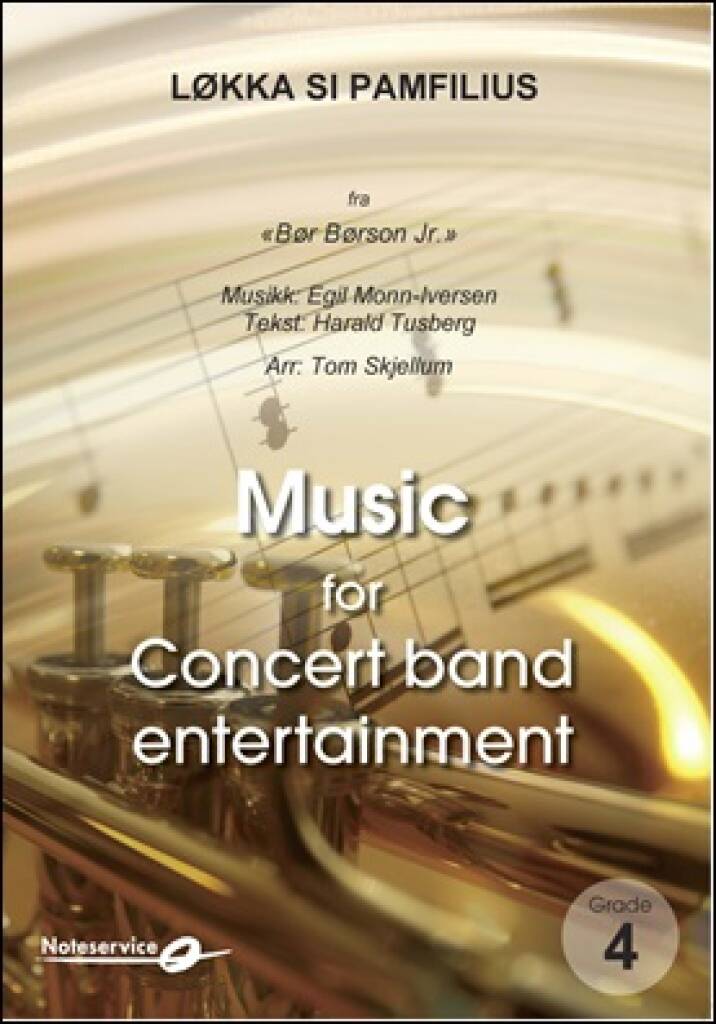 £137.70
£137.70Lkka si Pamfilius - Egil Monn-Iversen
Johan Falkberget wrote the novel Br Brson Jr. in 1920. It is the story of the naive bachelor and trader Br Brson Jr. and his fight for wealth and fame. On his way, he face prejudices and envy on the countryside and investors in the bigger citites. All of them tries to exploit his credulity. The musikal, based on the novel by Johan Falkberget, was written by Egil Monn-Iversen (music) and Harald Tusberg (lyrics) for Det Norske Teatret in 1972. It was a great success from the very beginning. In 1974, a movie version of Br Brson Jr. was produced. Also this with great success.
Estimated dispatch 7-14 working days
